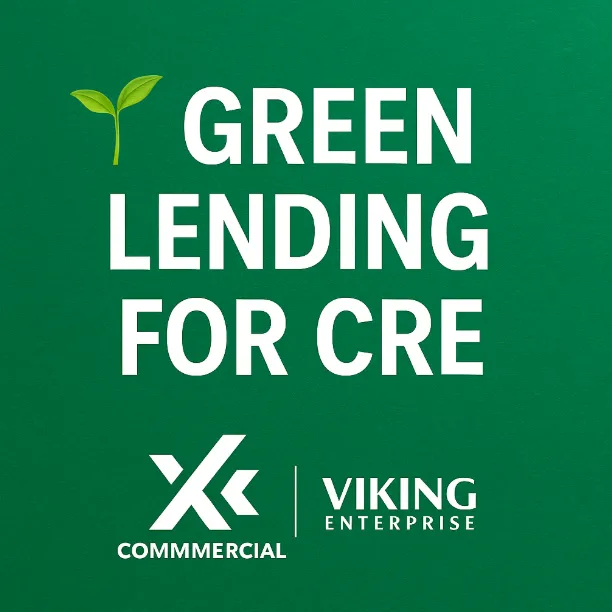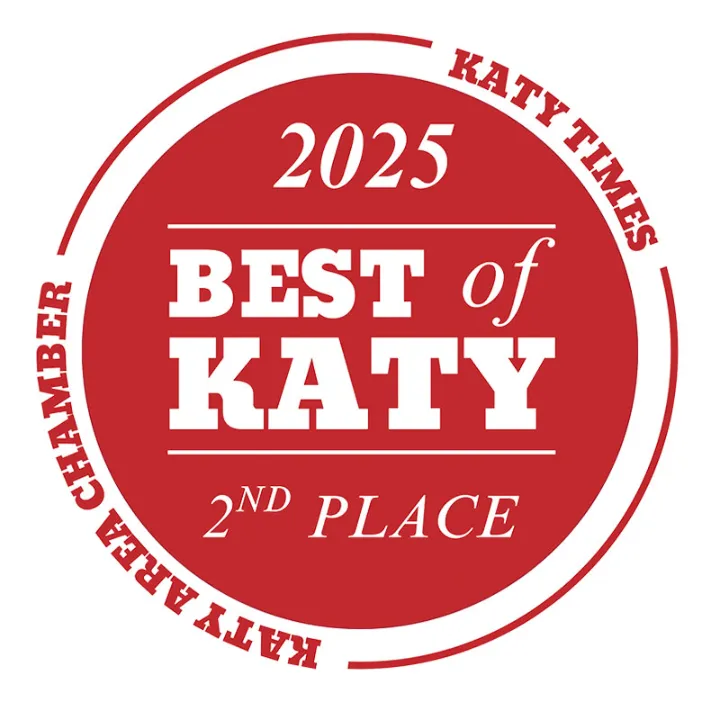Your Trusted Houston Commercial Real Estate Brokerage
Viking Enterprise LLC is part of eXp Commercial, an agent-led, cloud-based commercial real estate brokerage with agents across the globe.
Email: [email protected]
Call: (281) 222-0433
Your Trusted Katy / Fulshear & Houston Commercial Real Estate Brokerage
Viking Enterprise LLC is part of eXp Commercial, an agent-led, cloud-based commercial real estate brokerage with agents across the globe.
Looking to invest, buy, sell or lease? We can help.
Looking to invest, buy, sell or lease? We can help.
FEATURED PROPERTIES




OUR FEATURED TENANTS & CLIENTS
eXp Commercial - Viking Enterprise Team's real estate network provides unparalleled commercial real estate services to Tenants and Landlords around the Katy- Houston area. Our knowledge, experience, and reputation sets us apart from many firms.
A commercial property owner might have various plans that would necessitate the services of a commercial real estate broker. Some of the common scenarios include:
1. Selling the Property: If the owner decides it’s time to sell the property, a commercial real estate broker can help determine the market value, market the property effectively, and negotiate with potential buyers to get the best possible price.
2. Leasing Space: For property owners looking to lease out part or all of their commercial space, a broker can help find suitable tenants, negotiate lease terms, and ensure the lease agreements meet all legal requirements and serve the owner’s best interests.
3. Acquiring More Properties: Owners looking to expand their portfolio would benefit from a broker's knowledge of the market, access to listings, and negotiation skills to secure additional properties at favorable terms.
4. Property Management: While not all brokers offer this service, some commercial real estate brokers or their affiliates offer property management services. This can be particularly appealing for owners who prefer a hands-off approach or are managing properties from a distance.
5. Market Analysis: Owners considering future developments, renovations, or rebranding of their property might engage a broker for a comprehensive market analysis. This helps in understanding current market trends, the demand for different types of spaces, and potential returns on investment for various strategies.
6. Refinancing: In situations where a property owner is looking to refinance their property, a commercial real estate broker can provide valuable insights into the property’s current market value, assist in gathering necessary documentation, and even help in finding the best financing options.
7. Partnership or Investment Opportunities: Owners interested in exploring partnerships, joint ventures, or seeking investors for expansion or development projects might use a broker to find and vet potential partners or investors.
8. Consulting on Zoning and Use Changes: When contemplating a change in the use of the property or dealing with zoning issues, a broker with experience in local regulations and the specific property type can provide guidance and strategic planning assistance.
9. Exit Strategy Planning: For owners looking to plan an exit strategy from their investment, whether it’s through a strategic sale or a gradual winding down of operations, brokers can provide market insights, timing advice, and valuation services to optimize the exit process.
In any of these scenarios, the expertise and services provided by a commercial real estate broker can save the property owner time and money, while also providing access to a wider network of potential buyers, tenants, and industry professionals. Give us a call today!
Reviews

🌱 Green Lending for CRE: How Energy Efficiency Loans Boost ROI 💼
🌱 Green Lending for CRE: How Energy Efficiency Loans Boost ROI 💼
💡 Sustainable Financing: The Rise of Energy Efficiency Loans in Commercial Real Estate 🌎
🌱 Green Lending: Energy Efficiency Loans for CRE
In today’s competitive commercial real estate (CRE) market, sustainability isn’t just good for the planet—it’s good for your bottom line. Energy efficiency loans, often referred to as green lending, are helping investors, developers, and property owners reduce operating costs, increase property values, and attract eco-conscious tenants.
What Is Green Lending in CRE?
Green lending refers to financing options designed specifically for properties that incorporate energy-efficient systems, renewable energy sources, or sustainable construction materials. These loans often come with preferential terms, such as lower interest rates, longer amortization, or additional loan proceeds, because energy-efficient buildings tend to have lower default risk and higher long-term asset value.
Why Energy Efficiency Loans Make Sense for CRE Investors
1. Reduced Operating Costs – Energy-efficient upgrades like LED lighting, high-performance HVAC systems, and solar panels can slash utility bills.
2. Increased Property Value – Properties with green certifications such as LEED, ENERGY STAR, or BREEAM often command higher sale prices and rental rates.
3. Tenant Demand – More businesses are prioritizing ESG (Environmental, Social, Governance) commitments, making sustainable buildings more desirable.
4. Tax Incentives & Rebates – Federal, state, and local programs often provide financial incentives for energy efficiency upgrades.
Common Green Lending Programs
· PACE Financing (Property Assessed Clean Energy) – Allows repayment through property taxes, ideal for solar, HVAC, and water efficiency upgrades.
· SBA 504 Green Loan – For owner-occupied CRE projects meeting energy reduction or renewable energy standards.
· Fannie Mae & Freddie Mac Green Programs – For multifamily properties implementing water and energy-saving improvements.
· Private Lender Green Loans – Banks and commercial lenders offering special rates for energy efficiency retrofits or green-certified construction.
Qualifying for an Energy Efficiency Loan
Lenders typically require:
· Energy Audit – Proof of projected energy savings or efficiency improvements.
· Project Scope – Details on upgrades such as insulation, HVAC, windows, or renewable energy installations.
· Sustainability Certification – LEED, ENERGY STAR, or similar certifications can strengthen your application.
The Long-Term ROI of Going Green
According to the U.S. Department of Energy, commercial buildings that implement energy efficiency upgrades can reduce energy consumption by up to 30%, which directly impacts Net Operating Income (NOI) and property value. For CRE investors, this means higher cash flow and stronger exit values—all while meeting growing ESG expectations.
Bottom Line:
Green lending is no longer a niche—it's becoming the norm in CRE financing. By securing an energy efficiency loan, you’re not just upgrading your property—you’re future-proofing your investment.
https://www.houstonrealestatebrokerage.com/
https://www.houstonrealestatebrokerage.com/houston-cre-navigator
https://www.commercialexchange.com/agent/653bf5593e3a3e1dcec275a6
http://expressoffers.com/[email protected]
https://app.bullpenre.com/profile/1742476177701x437444415125976000
https://author.billrapponline.com/
https://www.amazon.com/dp/B0F32Z5BH2
https://veed.cello.so/FOmzTty6oi9
© 2023-2024 Bill Rapp, Broker Associate, eXp Commercial Viking Enterprise Team
eXp Commercial - Viking Enterprise team real estate network provides unparalleled commercial real estate services to Tenants and Landlords around the greater Katy & Houston MSA area. Our knowledge, experience, and reputation sets us apart from many firms.
A commercial property owner might have various plans that would necessitate the services of a commercial real estate broker. Some of the common scenarios include:
1. Selling the Property: If the owner decides it’s time to sell the property, a commercial real estate broker can help determine the market value, market the property effectively, and negotiate with potential buyers to get the best possible price.
2. Leasing Space: For property owners looking to lease out part or all of their commercial space, a broker can help find suitable tenants, negotiate lease terms, and ensure the lease agreements meet all legal requirements and serve the owner’s best interests.
3. Acquiring More Properties: Owners looking to expand their portfolio would benefit from a broker's knowledge of the market, access to listings, and negotiation skills to secure additional properties at favorable terms.
4. Property Management: While not all brokers offer this service, some commercial real estate brokers or their affiliates offer property management services. This can be particularly appealing for owners who prefer a hands-off approach or are managing properties from a distance.
5. Market Analysis: Owners considering future developments, renovations, or rebranding of their property might engage a broker for a comprehensive market analysis. This helps in understanding current market trends, the demand for different types of spaces, and potential returns on investment for various strategies.
6. Refinancing: In situations where a property owner is looking to refinance their property, a commercial real estate broker can provide valuable insights into the property’s current market value, assist in gathering necessary documentation, and even help in finding the best financing options.
7. Partnership or Investment Opportunities: Owners interested in exploring partnerships, joint ventures, or seeking investors for expansion or development projects might use a broker to find and vet potential partners or investors.
8. Consulting on Zoning and Use Changes: When contemplating a change in the use of the property or dealing with zoning issues, a broker with experience in local regulations and the specific property type can provide guidance and strategic planning assistance.
9. Exit Strategy Planning: For owners looking to plan an exit strategy from their investment, whether it’s through a strategic sale or a gradual winding down of operations, brokers can provide market insights, timing advice, and valuation services to optimize the exit process.
In any of these scenarios, the expertise and services provided by a commercial real estate broker can save the property owner time and money, while also providing access to a wider network of potential buyers, tenants, and industry professionals. Give us a call today!

Find the perfect location for your business.
Let us help your business succeed.

🌱 Green Lending for CRE: How Energy Efficiency Loans Boost ROI 💼
🌱 Green Lending for CRE: How Energy Efficiency Loans Boost ROI 💼
💡 Sustainable Financing: The Rise of Energy Efficiency Loans in Commercial Real Estate 🌎
🌱 Green Lending: Energy Efficiency Loans for CRE
In today’s competitive commercial real estate (CRE) market, sustainability isn’t just good for the planet—it’s good for your bottom line. Energy efficiency loans, often referred to as green lending, are helping investors, developers, and property owners reduce operating costs, increase property values, and attract eco-conscious tenants.
What Is Green Lending in CRE?
Green lending refers to financing options designed specifically for properties that incorporate energy-efficient systems, renewable energy sources, or sustainable construction materials. These loans often come with preferential terms, such as lower interest rates, longer amortization, or additional loan proceeds, because energy-efficient buildings tend to have lower default risk and higher long-term asset value.
Why Energy Efficiency Loans Make Sense for CRE Investors
1. Reduced Operating Costs – Energy-efficient upgrades like LED lighting, high-performance HVAC systems, and solar panels can slash utility bills.
2. Increased Property Value – Properties with green certifications such as LEED, ENERGY STAR, or BREEAM often command higher sale prices and rental rates.
3. Tenant Demand – More businesses are prioritizing ESG (Environmental, Social, Governance) commitments, making sustainable buildings more desirable.
4. Tax Incentives & Rebates – Federal, state, and local programs often provide financial incentives for energy efficiency upgrades.
Common Green Lending Programs
· PACE Financing (Property Assessed Clean Energy) – Allows repayment through property taxes, ideal for solar, HVAC, and water efficiency upgrades.
· SBA 504 Green Loan – For owner-occupied CRE projects meeting energy reduction or renewable energy standards.
· Fannie Mae & Freddie Mac Green Programs – For multifamily properties implementing water and energy-saving improvements.
· Private Lender Green Loans – Banks and commercial lenders offering special rates for energy efficiency retrofits or green-certified construction.
Qualifying for an Energy Efficiency Loan
Lenders typically require:
· Energy Audit – Proof of projected energy savings or efficiency improvements.
· Project Scope – Details on upgrades such as insulation, HVAC, windows, or renewable energy installations.
· Sustainability Certification – LEED, ENERGY STAR, or similar certifications can strengthen your application.
The Long-Term ROI of Going Green
According to the U.S. Department of Energy, commercial buildings that implement energy efficiency upgrades can reduce energy consumption by up to 30%, which directly impacts Net Operating Income (NOI) and property value. For CRE investors, this means higher cash flow and stronger exit values—all while meeting growing ESG expectations.
Bottom Line:
Green lending is no longer a niche—it's becoming the norm in CRE financing. By securing an energy efficiency loan, you’re not just upgrading your property—you’re future-proofing your investment.
https://www.houstonrealestatebrokerage.com/
https://www.houstonrealestatebrokerage.com/houston-cre-navigator
https://www.commercialexchange.com/agent/653bf5593e3a3e1dcec275a6
http://expressoffers.com/[email protected]
https://app.bullpenre.com/profile/1742476177701x437444415125976000
https://author.billrapponline.com/
https://www.amazon.com/dp/B0F32Z5BH2
https://veed.cello.so/FOmzTty6oi9
© 2023-2024 Bill Rapp, Broker Associate, eXp Commercial Viking Enterprise Team
Find the perfect location for your business.
Let us help your business succeed.
9600 Great Hills Trail, Suite 150w Austin, TX 78759 |
855.450.0324 xx255
Texas Real Estate Commission Consumer Protection Notice Texas Real Estate Commission
Information About Brokerage Services eXp Commercial LLC #9010212
Viking Enterprise LLC #9009614

Sign up to receive the latest news on property investment and commercial real estate listings.
Contact Us
901 S Mopac Expwy, Bldg 2, Suite 350 Austin, TX 78746 | 512.474.5557Texas Real Estate Commission
Consumer Protection Notice Texas Real Estate Commission Information About Brokerage Services Reliance Retail, LLC #603091
Texas RS, LLC #9003193 | RESOLUT RE Is Licensed In Louisiana #0995694083


Facebook
Instagram
X
LinkedIn
Youtube
TikTok